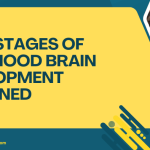Table of Contents
- Introduction
- 1. Foster a Stimulating Environment
- 2. Encourage Play and Physical Activity
- 3. Promote a Balanced Diet
- 4. Prioritize Sleep
- 5. Engage in Meaningful Conversations
- FAQs
- Conclusion
Introduction
Every parent wants the best for their child, especially when it comes to brain development. The early years are crucial for cognitive growth, and small changes in daily routines can make a significant difference. In this article, we will explore the top five best practices that can boost your child’s brain development, laying a solid foundation for their future learning and success.
1. Foster a Stimulating Environment
A stimulating environment is rich with opportunities for exploration and learning. This includes:
- Diverse Learning Materials: Provide books, puzzles, and art supplies that cater to your child’s interests. A variety of materials can spark curiosity and creativity.
- Interactive Learning: Engage your child with educational games and activities. Websites like PBS Kids offer interactive games that promote learning while being fun (PBS Kids).
- Limit Screen Time: While technology can be educational, excessive screen time can hinder brain development. The American Academy of Pediatrics suggests limiting screen time to no more than one hour per day for children aged 2 to 5 (AAP Screen Time Guidelines).
“Curiosity is the engine of achievement.” – Sir Ken Robinson
| Learning Materials | Benefits |
|---|---|
| Books | Enhances vocabulary and comprehension skills |
| Puzzles | Improves problem-solving abilities |
| Art Supplies | Boosts creativity and fine motor skills |
“The environment is the best teacher.”
Also look for insights on how a stimulating environment is vital for brain health in Top 5 Essential Insights on Neuro Care You Need to Know.
2. Encourage Play and Physical Activity
Play is not just fun; it’s essential for brain development.
- Types of Play: Encourage both structured play (like sports and games) and unstructured play (like imaginative play). Both types stimulate different areas of the brain.
- Physical Activity: Regular exercise boosts blood flow to the brain and enhances cognitive function. Activities like dancing, running, or even a simple game of tag can be beneficial.
“Play is the highest form of research.” – Albert Einstein
- Social Interaction: Playdates and team sports help children develop social skills and emotional intelligence, which are crucial for overall development.
Studies have shown that children who engage in regular physical activity tend to perform better academically and socially (Centers for Disease Control and Prevention).
3. Promote a Balanced Diet
Nutrition plays a vital role in brain development.
- Essential Nutrients: Focus on foods rich in omega-3 fatty acids (found in fish), antioxidants (in fruits and vegetables), and whole grains. These nutrients foster healthy brain function and development.
- Hydration: Encourage your child to drink plenty of water. Dehydration can negatively affect concentration and cognitive abilities.
- Regular Meals: Establishing a routine for meals helps to regulate energy levels and promotes a healthy metabolism.
| Food Groups | Brain-Boosting Foods |
|---|---|
| Protein | Eggs, lean meats, legumes |
| Fruits & Vegetables | Berries, spinach, broccoli |
| Whole Grains | Oatmeal, quinoa, brown rice |
“You are what you eat, so don’t be fast, cheap, easy, or fake.”
For further insights on the importance of nutrition for brain health, refer to Top 5 Foods to Enhance Your Brain Health Naturally.
4. Prioritize Sleep
Sleep is often overlooked, yet it is crucial for brain development.
- Sleep Recommendations: The National Sleep Foundation recommends that preschoolers get 10-13 hours of sleep per night (National Sleep Foundation). This is essential for memory consolidation and overall cognitive function.
- Sleep Hygiene: Establish a calming bedtime routine that can include reading a book or listening to soft music. This helps signal to your child that it’s time to wind down.
“Sleep is the best meditation.” – Dalai Lama
- Consistent Schedule: Try to maintain a regular sleep schedule, as consistency helps regulate your child’s internal clock, leading to better sleep quality.
Also, look into strategies for enhancing sleep quality through practices mentioned in Top 5 Sleep Tips to Reduce Epileptic Seizures for more holistic approaches.
5. Engage in Meaningful Conversations
Talking to your child is one of the most effective ways to enhance their brain development.
- Ask Open-Ended Questions: Encourage your child to express their thoughts and feelings. Questions like “What was your favorite part of the day?” stimulate critical thinking and language skills.
- Read Together: Reading aloud not only enhances vocabulary but also fosters a love for stories and imagination. Discuss the characters and plot to deepen comprehension.
“The art of conversation is the art of hearing as well as of being heard.” – William Hazlitt
- Active Listening: Show genuine interest in what your child has to say. This builds their confidence and encourages them to articulate their thoughts more clearly.
For additional insights on communication strategies that promote mental health, check out Top 5 Ways Family Support Enhances Neuro Recovery.
FAQs
How can I tell if my child is developing normally?
Every child develops at their own pace, but monitoring milestones can help. If you have concerns, consult your pediatrician for guidance.
What activities are best for brain development?
Activities like reading, playing musical instruments, and engaging in puzzles or strategy games are excellent for cognitive development.
Is screen time completely bad?
Not necessarily. Educational screen time can be beneficial, but balance is key. Always prioritize interactive and educational content over passive viewing.
How important is social interaction for brain development?
Very important! Social skills are crucial for emotional development and can significantly impact a child’s academic success.
Conclusion
Enhancing your child’s brain development is a rewarding journey that requires attention and care. By fostering a stimulating environment, encouraging play and physical activity, promoting a balanced diet, prioritizing sleep, and engaging in meaningful conversations, you can set your child up for a bright future. Remember, every small step counts in nurturing their growing minds! For more tips and resources, check out Zero to Three, an excellent resource for early childhood development.
By actively engaging in these practices, you’re not just contributing to your child’s brain development; you’re also building a strong, trusting relationship that will last a lifetime. Happy parenting!






